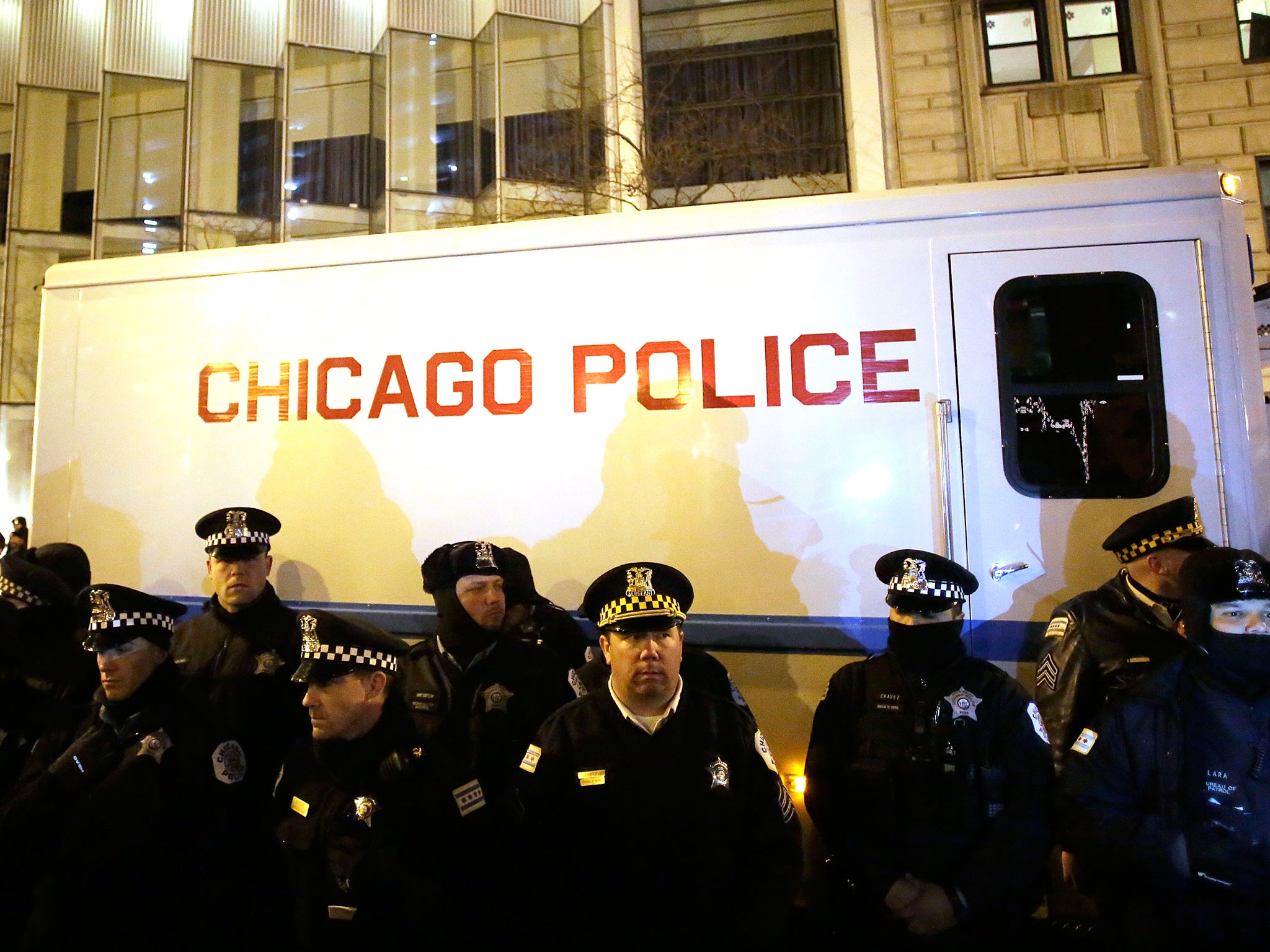Chicago releases video and documents detailing 'almost 100' cases of police misconduct
This is the latest in a citywide effort to regain the trust of its residents

Your support helps us to tell the story
From reproductive rights to climate change to Big Tech, The Independent is on the ground when the story is developing. Whether it's investigating the financials of Elon Musk's pro-Trump PAC or producing our latest documentary, 'The A Word', which shines a light on the American women fighting for reproductive rights, we know how important it is to parse out the facts from the messaging.
At such a critical moment in US history, we need reporters on the ground. Your donation allows us to keep sending journalists to speak to both sides of the story.
The Independent is trusted by Americans across the entire political spectrum. And unlike many other quality news outlets, we choose not to lock Americans out of our reporting and analysis with paywalls. We believe quality journalism should be available to everyone, paid for by those who can afford it.
Your support makes all the difference.The city of Chicago released a trove of records - including video, audio, and other media - related to roughly 100 incidents of misconduct by police officers as part of a new transparency policy adopted amid controversies surrounding the secrecy of law enforcement in the city.
“Our desire is that the reforms we initiate under the IPRA banner will be carried into the future as the city transitions to a new accountability structure,” said Sharon Fairley, chief administrator of the Independent Police Review Authority (IPRA).
The Associated Press says that not all of the videos to be released Friday are related to police shootings; nor are they necessarily expected to create a major shockwave in the city as video depicting the October death of Laquan McDonald did after its release. Proponents of police reform in the city do view the document dump as a "sea change" in how the city investigates police misconduct.
The release comes six months after the city of Chicago released police dashcam footage from November 2014 showing Officer Jason Van Dyke shoot 17-year-old Mr McDonald 16 times. Mr Van Dyke was charged with first-degree murder in the killing of the unarmed black teenager.
On Thursday, a Cook County judge approved the appointment of a special prosecutor for the case.
With the release of the documents, the IPRA also officially launched a new policy that requires police to release audo and video recordings, as well as police reports, to the public within 60 days of the initial incident. Mayor Rahm Emanuel adopted the police in February 2016. In accordance with the policy, the IPRA established a database to facilitate the release of data.
According to the IPRA, the database will include data from pending investigations involving officer-involved shootings, officer-involved taser use that results in death or "great bodily harm", and incidents of death or great bodily harm (that are not self-inflicted) that occur while an individual is in police custody.
“As an agency we’ve devoted significant time and effort into developing this case portal and we are hopeful that implementing this new policy will take the city a step closer to building a police accountability system that cultivates trust from the community,” Ms Fairley said.
After the release of the video depicting Officer Van Dyke shooting Laquan McDonald to death, the public demanded the resignation of Mr Emanuel, accusing him and his administration of a massive cover-up. The video exacerbated the climate after it significantly conflicted with the officers' accounts.
The IPRA was established by the city of Chicago in 2007 to respond to widespread public concern about how reports of police misconduct were being handled by the city. They have since lost public trust following years of secrecy by Chicago police.
The civilian-operated organisation was approved by the City Council in efforts to increase accountability and transparency, as well as to expedite the complaint procedure for Chicago residents.
“I think this is a big thing,” Craig Futterman, a professor of law at the University of Chicago who studies police misconduct, told the Chicago Tribune. “We are experiencing a sea change, and lots of credit should go around for that.”
In March, the IPRA launched an historical audit of its own investigation procedures in an effort to regain the public’s trust.
“In order to restore trust in IPRA,” Ms Fairley said in a statement, “we must understand how our work lost public confidence in the first place so we can make the necessary changes to policies and procedures going forward.”
The US Department of Justice launched an investigation into the "patterns and practices" of the Chicago Police Department. DOJ officials said that the investigation was "inseparable" from the McDonald case, but will look at the broader racial implications of officers' use of force.
“Building trust between law enforcement officers and the communities they serve is one of my highest priorities as Attorney General,” said US Attorney General Loretta Lynch. “The Department of Justice intends to do everything we can to foster those bonds and create safer and fairer communities across the country.
"And regardless of the findings in this investigation, we will seek to work with local officials, residents, and law enforcement officers alike to ensure that the people of Chicago have the world-class police department they deserve.”
Join our commenting forum
Join thought-provoking conversations, follow other Independent readers and see their replies
Comments